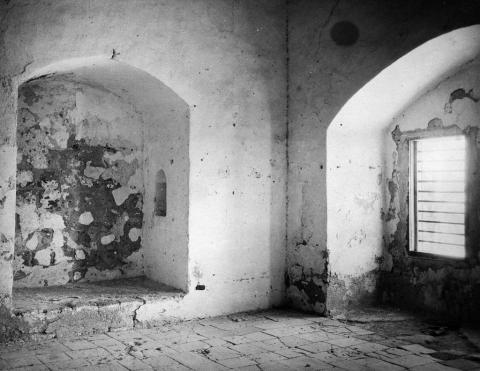This uncle did everything possible to discredit Bahá’u’lláh and the truth of the Message He had brought. But when he realized he was incapable of doing so, he went to a well-known Muslim clergy and pleaded for his assistance. He complained that Bahá’u’lláh had come to Nur and, although not of the clergy, was speaking on religious matters. He warned the theologian that everyone who entered Bahá’u’lláh’s presence fell under His spell and was overtaken by the power of His words. “I know not whether he is a sorcerer,” he said, “or whether he mixes with his tea some mysterious substance that makes every man who drinks the tea fall a victim to its charm.”
Knowing that he could never succeed in challenging Bahá’u’lláh, the theologian ignored the pleas of the uncle. But the Message of the Báb continued to spread like wildfire throughout the district. Alarmed, the followers of the theologian began to put pressure on him to take some form of action, and finally he decided to send his two most outstanding pupils to visit Bahá’u’lláh and investigate the nature of the Message He was propagating. This is the story of what happened when those two representatives entered the presence of Bahá’u’lláh.
On being told, upon their arrival in Takur, that Bahá’u’lláh had left for His winter home, the representatives of the theologian decided to follow Him there. When they arrived they found Bahá’u’lláh engaged in revealing a commentary on one of the chapters of the Qur’an. As they sat and listened to Him, they were profoundly impressed by the eloquence of His presentation and the extraordinary manner in which He spoke. One of the representatives, unable to contain himself, arose from his seat and walked to the back of the room and, in an attitude of respect and submissiveness, stood still beside the door. Trembling and with eyes full of tears, he told his companion: “I am powerless to question Bahá’u’lláh. The questions I had planned to ask Him have vanished suddenly from my memory. You are free either to proceed with your inquiry or to return alone to our teacher and inform him of the state in which I find myself. Tell him from me that I can never again return to him. I can no longer forsake this threshold.” But the other representative was equally struck by Bahá’u’lláh’s words and followed the example of his friend. “I have ceased to recognize my teacher,” was his reply. “This very moment, I have vowed to God to dedicate the remaining days of my life to the service of Bahá’u’lláh, my true and only Master.
The news of the conversion of the theologian’s pupils spread rapidly among the population of Nur. Dignitaries, state officials, religious leaders, traders and peasants crowded to the presence of Bahá’u’lláh. Hundreds were brought under the banner of the new Faith.
